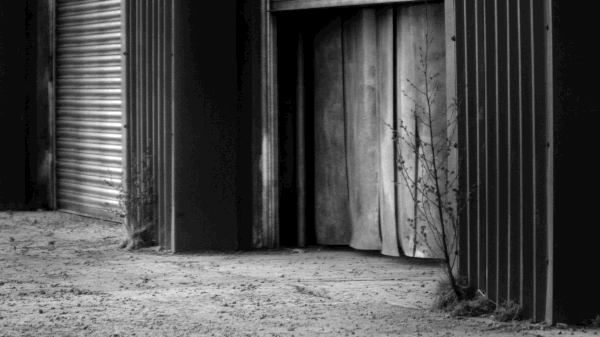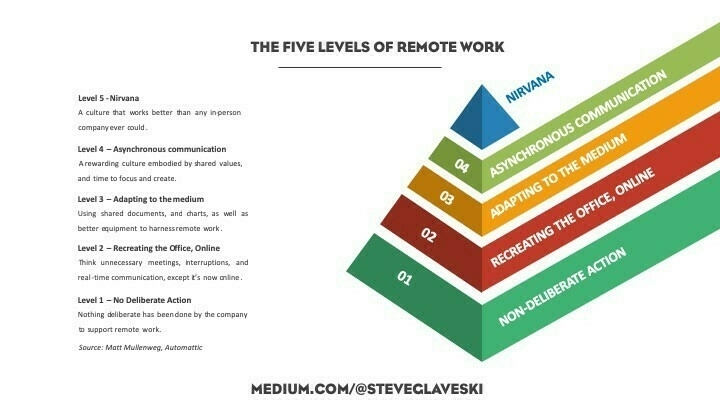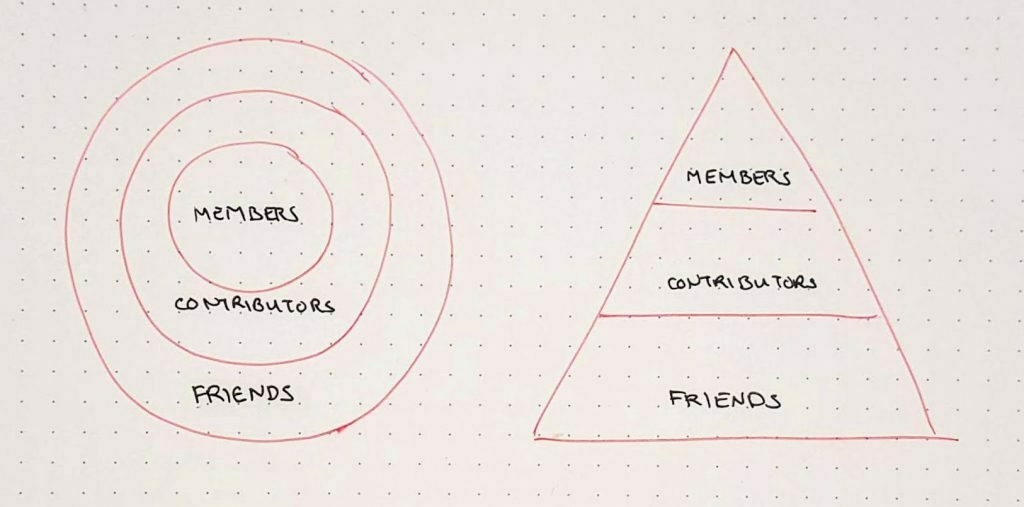Building a system for success, without the glitches
Wise words from Seth Godin. It’s a twist on the advice to stop doing things that maybe used to work but don’t any more. The ‘glitch’ he’s talking about here isn’t just in terms of what might not be working for you or your organisation, but for society and humanity as a whole.

Many moths are attracted to light. That works fine when it’s a bright moon and an open field, but not so well for the moths if the light was set up as a bug trap.Source: Finding the glitch | Seth’s BlogProcessionary caterpillars follow the one in front until their destination, even if they’re arranged in a circle, leading them to march until exhaustion.
It might be that you have built a system for your success that works much of the time, but there’s a glitch in it that lets you down. Or it might be that we live in a culture that creates wealth and possibility, but glitches when it fails to provide opportunity to others or leaves a mess in our front yards.
Image: DALL-E 3
You can never get rid of what is part of you, even when you throw it away

🤖 Why the Dancing Robots Are a Really, Really Big Problem — "No, robots don’t dance: they carry out the very precise movements that their — exceedingly clever — programmers design to move in a way that humans will perceive as dancing. It is a simulacrum, a trompe l’oeil, a conjurer’s trick. And it works not because of something inherent in the machinery, but because of something inherent in ours: our ever-present capacity for finding the familiar. It looks like human dancing, except it’s an utterly meaningless act, stripped of any social, cultural, historical, or religious context, and carried out as a humblebrag show of technological might."
💭 Why Do We Dream? A New Theory on How It Protects Our Brains — "We suggest that the brain preserves the territory of the visual cortex by keeping it active at night. In our “defensive activation theory,” dream sleep exists to keep neurons in the visual cortex active, thereby combating a takeover by the neighboring senses."
✅ A simple 2 x 2 for choices — "It might be simple, but it’s not always easy. Success doesn’t always mean money, it just means that you got what you were hoping for. And while every project fits into one of the four quadrants, there’s no right answer for any given person or any given moment.."
📅 Four-day week means 'I don't waste holidays on chores' — "The four-day working week with no reduction in pay is good for the economy, good for workers and good for the environment. It's an idea whose time has come."
💡 100 Tips For A Better Life — "It is cheap for people to talk about their values, goals, rules, and lifestyle. When people’s actions contradict their talk, pay attention!"
Saturday shakings
Whew, so many useful bookmarks to re-read for this week’s roundup! It took me a while, so let’s get on with it…

What is the future of distributed work?
To Bharat Mediratta, chief technology officer at Dropbox, the quarantine experience has highlighted a huge gap in the market. “What we have right now is a bunch of different productivity and collaboration tools that are stitched together. So I will do my product design in Figma, and then I will submit the code change on GitHub, I will push the product out live on AWS, and then I will communicate with my team using Gmail and Slack and Zoom,” he says. “We have all that technology now, but we don't yet have the ‘digital knowledge worker operating system’ to bring it all together.”
WIRED
OK, so this is a sponsored post by Dropbox on the WIRED website, but what it highlights is interesting. For example, Monday.com (which our co-op uses) rebranded itself a few months ago as a 'Work OS'. There's definitely a lot of money to be made for whoever manages to build an integrated solution, although I think we're a long way off something which is flexible enough for every use case.
The Definition of Success Is Autonomy
Today, I don’t define success the way that I did when I was younger. I don’t measure it in copies sold or dollars earned. I measure it in what my days look like and the quality of my creative expression: Do I have time to write? Can I say what I think? Do I direct my schedule or does my schedule direct me? Is my life enjoyable or is it a chore?
Ryan Holiday
Tim Ferriss has this question he asks podcast guests: "If you could have a gigantic billboard anywhere with anything on it what would it say and why?" I feel like the title of this blog post is one of the answers I would give to that question.
Do The Work
We are a small group of volunteers who met as members of the Higher Ed Learning Collective. We were inspired by the initial demand, and the idea of self-study, interracial groups. The initial decision to form this initiative is based on the myriad calls from people of color for white-bodied people to do internal work. To do the work, we are developing a space for all individuals to read, share, discuss, and interrogate perspectives on race, racism, anti-racism, identity in an educational setting. To ensure that the fight continues for justice, we need to participate in our own ongoing reflection of self and biases. We need to examine ourselves, ask questions, and learn to examine our own perspectives. We need to get uncomfortable in asking ourselves tough questions, with an understanding that this is a lifelong, ongoing process of learning.
Ian O'Byrne
This is a fantastic resource for people who, like me, are going on a learning journey at the moment. I've found the podcast Seeing White by Scene on Radio particularly enlightening, and at times mind-blowing. Also, the Netflix documentary 13th is excellent, and available on YouTube.

How to Make Your Tech Last Longer
If we put a small amount of time into caring for our gadgets, they can last indefinitely. We’d also be doing the world a favor. By elongating the life of our gadgets, we put more use into the energy, materials and human labor invested in creating the product.
Brian X. Chen (The new York times)
This is a pretty surface-level article that basically suggests people take their smartphone to a repair shop instead of buying a new one. What it doesn't mention is that aftermarket operating systems such as the Android-based LineageOS can extend the lifetime of smartphones by providing security updates long beyond those provided by vendors.
Law enforcement arrests hundreds after compromising encrypted chat system
EncroChat sold customized Android handsets with GPS, camera, and microphone functionality removed. They were loaded with encrypted messaging apps as well as a secure secondary operating system (in addition to Android). The phones also came with a self-destruct feature that wiped the device if you entered a PIN.
The service had customers in 140 countries. While it was billed as a legitimate platform, anonymous sources told Motherboard that it was widely used among criminal groups, including drug trafficking organizations, cartels, and gangs, as well as hitmen and assassins.
EncroChat didn’t become aware that its devices had been breached until May after some users noticed that the wipe function wasn’t working. After trying and failing to restore the features and monitor the malware, EncroChat cut its SIM service and shut down the network, advising customers to dispose of their devices.
Monica Chin (The Verge)
It goes without saying that I don't want assassins, drug traffickers, and mafia types to be successful in life. However, I'm always a little concerned when there are attacks on encryption, as they're compromising systems also potentially used by protesters, activists, and those who oppose the status quo.
Uncovered: 1,000 phrases that incorrectly trigger Alexa, Siri, and Google Assistant
The findings demonstrate how common it is for dialog in TV shows and other sources to produce false triggers that cause the devices to turn on, sometimes sending nearby sounds to Amazon, Apple, Google, or other manufacturers. In all, researchers uncovered more than 1,000 word sequences—including those from Game of Thrones, Modern Family, House of Cards, and news broadcasts—that incorrectly trigger the devices.
“The devices are intentionally programmed in a somewhat forgiving manner, because they are supposed to be able to understand their humans,” one of the researchers, Dorothea Kolossa, said. “Therefore, they are more likely to start up once too often rather than not at all.”
Dan Goodin (Ars Technica)
As anyone with voice assistant-enabled devices in their home will testify, the number of times they accidentally spin up, or misunderstand what you're saying can be amusing. But we can and should be wary of what's being listened to, and why.

The Five Levels of Remote Work — and why you’re probably at Level 2
Effective written communication becomes critical the more companies embrace remote work. With an aversion to ‘jumping on calls’ at a whim, and a preference for asynchronous communication... [most] communications [are] text-based, and so articulate and timely articulation becomes key.
Steve Glaveski (The Startup)
This is from March and pretty clickbait-y, but everyone wants to know how they can improve - especially if didn't work remotely before the pandemic. My experience is that actually most people are at Level 3 and, of course, I'd say that I and my co-op colleagues are at Level 5 given our experience...
Why Birds Can Fly Over Mount Everest
All mammals, including us, breathe in through the same opening that we breathe out. Can you imagine if our digestive system worked the same way? What if the food we put in our mouths, after digestion, came out the same way? It doesn’t bear thinking about! Luckily, for digestion, we have a separate in and out. And that’s what the birds have with their lungs: an in point and an out point. They also have air sacs and hollow spaces in their bones. When they breathe in, half of the good air (with oxygen) goes into these hollow spaces, and the other half goes into their lungs through the rear entrance. When they breathe out, the good air that has been stored in the hollow places now also goes into their lungs through that rear entrance, and the bad air (carbon dioxide and water vapor) is pushed out the front exit. So it doesn’t matter whether birds are breathing in or out: Good air is always going in one direction through their lungs, pushing all the bad air out ahead of it.
Walter Murch (Nautilus)
Incredible. Birds are badass (and also basically dinosaurs).
Montaigne Fled the Plague, and Found Himself
In the many essays of his life he discovered the importance of the moderate life. In his final essay, “On Experience,” Montaigne reveals that “greatness of soul is not so much pressing upward and forward as knowing how to circumscribe and set oneself in order.” What he finds, quite simply, is the importance of the moderate life. We must then, he writes, “compose our character, not compose books.” There is nothing paradoxical about this because his literary essays helped him better essay his life. The lesson he takes from this trial might be relevant for our own trial: “Our great and glorious masterpiece is to live properly.”
Robert Zaresky (The New York Times)
Every week, Bryan Alexander replies to the weekly Thought Shrapnel newsletter. Last week, he sent this article to both me and Chris Lott (who produces the excellent Notabilia).
We had a bit of a chat, with us sharing our love of How to Live: A Life of Montaigne in One Question and Twenty Attempts at An Answer by Sarah Bakewell, and well as the useful tidbits it's possible glean from Stefan Zweig's short biography simply entitled Montaigne.
Header image by Nicolas Comte
Tennessee Williams on the problems that come with success
I can’t remember now where I came across this link to a 1947 essay entitled ‘The Catastrophe of Success’ written by Tennessee Williams' for The New York Times. It’s excellent, and I’m not sure how to keep this down to my customary maximum limit of three quotations.
Williams talks about being suddenly thrust into the limelight and a life of luxury after, well, the opposite:
The sort of life that I had had previous to this popular success was one that required endurance, a life of clawing and scratching along a sheer surface and holding on tight with raw fingers to every inch of rock higher than the one caught hold of before, but it was a good life because it was the sort of life for which the human organism is created.Staying in a 'first-class hotel suite' didn't bring him pleasure but rather made him rather depressed. He didn't feel inspired or ready to create a follow-up to his breakout play The Glass Menagerie and was rather embarrassed not only by the attention, but because he no longer had to perform any menial tasks:
I have been corrupted as much as anyone else by the vast number of menial services which our society has grown to expect and depend on. We should do for ourselves or let the machines do for us, the glorious technology that is supposed to be the new light of the world. We are like a man who has bought up a great amount of equipment for a camping trip, who has the canoe and the tent and the fishing lines and the axe and the guns, the mackinaw and the blankets, but who now, when all the preparations and the provisions are piled expertly together, is suddenly too timid to set out on the journey but remains where he was yesterday and the day before and the day before that, looking suspiciously through white lace curtains at the clear sky he distrusts. Our great technology is a God-given chance for adventure and for progress which we are afraid to attempt.The biggest takeaway for me is the line I've highlighted below. We're meant to struggle in life. That doesn't mean a life of poverty or hardship, but it is important to struggle towards something, particularly in creative endeavours:
One does not escape that easily from the seduction of an effete way of life. You cannot arbitrarily say to yourself, I will not continue my life as it was before this thing, Success, happened to me. But once you fully apprehend the vacuity of a life without struggle you are equipped with the basic means of salvation. Once you know this is true, that the heart of man, his body and his brain, are forged in a white-hot furnace for the purpose of conflict (the struggle of creation) and that with the conflict removed, the man is a sword cutting daisies, that not privation but luxury is the wolf at the door and that the fangs of this wolf are all the little vanities and conceits and laxities that Success is heir to—-why, then with this knowledge you are at least in a position of knowing where danger lies.So, yes, the 'catastrophe' of success.
Source: Genius.com
